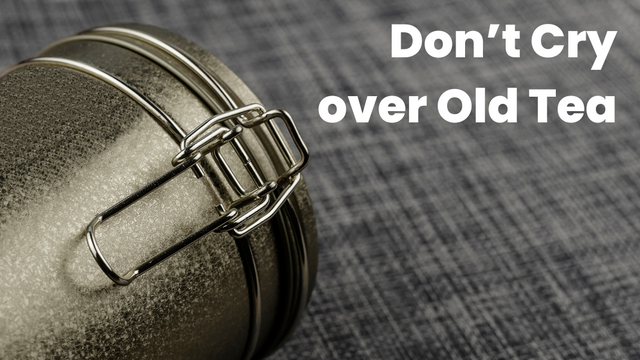How Long Does Tea Last? Everything you need to know

Does tea expire?

We at ITI believe tea is to be enjoyed at its best so we’re a firm believer of using the best before date as the expiry date for our teas.
How long does tea last?
Unopened:
- Loose leaf tea: 18-24 months
- Tea bags: 12-24 months
- RTD (cans and bottles): 18-24+ months
Opened:
- Loose leaf tea: 6-12 months
- Tea bags: 4-10 months
- RTD (cans and bottles): 2-7 days
Which teas have longer shelf lives?
The less oxidation that occurs, and consequently, the more moisture the leaf retains, the less shelf life the tea has.
To counteract this, teas are usually dried by the manufacturers before packaging. Different teas are dried to different levels due to flavor demands and as such, will have lower shelf lives than teas that are dried for longer.
The next major factor in shelf life of teas is what ‘form’ the tea is in.
Whole and cut leaves (the type used in loose leaf teas) generally last longer than dust and fannings (tea bags). This difference is due to the likelihood of dust and fannings to absorb moisture and develop mold while on the shelf.

Teas with the longest shelf life:
- Pu Erh Tea
- (Darker) Oolong Tea
- Black Tea
- Silver Needle tea
- Some Mixed Teas(Darker Blends of Tea Only)
Teas with the lowest shelf life:
- Green Tea
- Yellow Tea
- (Green) Oolong Tea
- Herbal Tea
- Fruit Tea
- Aromatized Teas
How to keep your tea fresh for as long as possible
Keep away from direct sunlight
You'd think that for all the good it does and the fact that, you know, it's always there… things on earth would have evolved to do well in sunlight but apparently that's too much to ask.
Avoid leaving your tea anywhere the sun can shine, that means no windows, displays or basically anywhere at or near outside.
Keep it dark and cool
Tea loves dark and brooding places. However, cool doesn't mean refrigerated, this is a great way of introducing moisture to your tea, which is terrible for longevity.
A nice dark cupboard, storeroom or warehouse is the perfect environment for keeping your tea fresh and flavorful.
Store away from strong odors and other types of teas
Yes, this seems contradictory to what we just told you but it really does make sense.
Tea loves to infuse and absorb things from its surroundings which is why you don't want them near other items or teas with strong odors, we don't want your tea taking on the flavor of another and spoiling the whole brew. It's best to store teas of similar kinds together and have separate spaces for your more powerful smelling items.
Avoid humidity
Use appropriate containers
Jars, ziplock bags and vacuum seals are all fantastic ways of not only keeping humidity out but all those pesky microorganisms just dying for a chance to call your tea stash home. Here are a few more tea safety tips;
-
Be sure your packaging is food-safe
-
Glazed ceramics, non-reactive metals, and opaque, non-leaching plastics all make great packaging materials..
-
The bags that suppliers sell tea in vary widely in terms of quality. For long-term storage, it's best to switch to your own container or for larger, wholesale amounts of tea, invest in a dedicated, climate controlled storage space.
How to tell if your tea has gone bad
Acidic, fermented smell:
Oozing tea leaves:
Mycelium:
Discoloration:
What to do if your tea has gone bad
Turn it into compost
Throw all those bad loose leaf teas and tea bags into your compost heap and let them return to the earth as nice, sweet plant food, you can then use these for your plants.
If you're a tea business, this is a great way to let people know just how eco-friendly and sustainable you are, which is a huge draw for new customers.
Consider making a few social posts about your tea’s journey from plant to processing plant to being plant food.
Make a face scrub
Soak in it
Conclusion
We send cool emails.
Sign up to receive special discounts, recipes, and more.

 />
/>